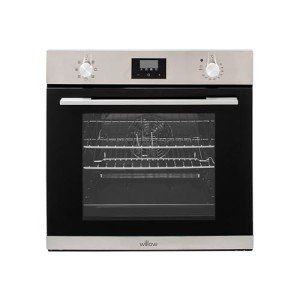What Will Built In Oven And Hob Be Like In 100 Years?
The Modern Kitchen: A Guide to Built-In Ovens and Hobs
In today's hectic world, where cooking has actually become a creative outlet and a vital part of life, having the right kitchen appliances is vital. Among these, built-in ovens and hobs stand out as favorites in modern-day kitchen areas. This article aims to explore these appliances in depth, discussing their advantages, types, installation options, and necessary pointers for picking the best designs for your kitchen.
Comprehending Built-In Ovens and Hobs
What are Built-In Ovens?
A built-in oven is an appliance that is developed to fit flawlessly into cabinetry, supplying a tidy visual in the kitchen. They differ from freestanding ovens and are understood for their versatility, available in various sizes and functionalities. Built-in ovens can be electric, gas, or even steam ovens, making them appropriate for various cooking designs.
What are Hobs?
Hobs, likewise referred to as cooktops, are the flat cooking surfaces typically located on the countertop. Like ovens, hobs come in many forms, consisting of gas, electric, induction, and even integrated styles. Their compact nature enables flexibility in kitchen layouts and styles.
Table 1: Comparison of Built-In Ovens and Hobs
Function
Built-In Oven
Hob
Installation Type
Integrated into kitchen cabinets
Set up on counter top
Cooking Methods
Baking, roasting, steaming
Boiling, frying, sautéing
Types
Single, double, combination
Gas, electric, induction
Visual appeals
Modern, streamlined designs
Various surfaces offered
Control
Digital programs, handbook
Knob or touch control
Cost Range
Mid to high-range
Wide, depending on type
Advantages of Built-In Ovens and Hobs
Visual Appeal
Built-in ovens and hobs contribute considerably to a streamlined appearance in modern kitchens. Their integration into cabinets enables a tidy and professional surface that matches any kitchen style.
Space-Saving Design
One of the critical benefits of built-in ovens and hobs is their space-saving design. As they are fitted straight into kitchen cabinetry, they maximize valuable counter area, making the kitchen feel larger and more organized.
Versatility in Cooking Methods
Built-in ovens included different cooking functions, such as convection, grilling, and self-cleaning choices. Likewise, hobs use varied cooking techniques, including quick boiling with induction innovation or the traditional flame of gas hobs. This versatility enables home cooks to explore a large range of cooking strategies.
Improved Safety Features
Lots of contemporary built-in hobs and ovens come with innovative security functions, such as automatic shut-off, cool-touch doors, and kid locks. These features boost safety, especially in homes with children.
Choosing the Right Built-In Oven and Hob
Selecting the ideal built-in oven and hob for your kitchen includes a number of factors to consider:
Factors to Consider
- Kitchen Layout: Understand the flow and design of your area to choose appliances that fit your design.
- Cooking Habits: Are you a casual cook, or do you prepare intricate meals? Comprehending your cooking needs will direct your choice.
- Spending plan: Building a budget plan will help limit your choices without overspending.
- Energies Available: Check if you have access to gas lines for a gas hob or if you choose electric choices.
- Energy Efficiency: Look for energy-efficient designs that can save on electricity or gas costs gradually.
Kinds Of Built-In Ovens and Hobs
Built-In Ovens
- Single Ovens: Ideal for smaller sized cooking areas or casual cooks.
- Double Ovens: Great for those who typically captivate or prepare several dishes concurrently.
- Combination Ovens: Feature both standard and microwave functionalities.
Hobs
- Gas Hobs: Perfect for those who choose the control of open flames.
- Electric Hobs: Common and simple to utilize, but might take longer to warm up.
- Induction Hobs: Quick heating and energy-efficient, but need suitable cookware.
FAQ Section
**Q1: Are built-in ovens more costly than freestanding ovens?A1: Generally, built-in ovens are more pricey due to their style and setup requirements. However, please click the following web site can vary based on functions and brands. Q2: Can I install a built-in oven myself?A2: While DIY
installation is possible, it is recommended to work with an expert for gas and electrical connections to ensure safety and compliance with local codes. Q3: What upkeep do built-in ovens and hobs require?A3: Regular cleansing is necessary. Hobs may need periodicdescaling, and ovens can benefit from self-cleaning features if**
readily available. Q4: How do I pick between gas and electric hobs?A4: Consider your cooking choices, available energy connections, and security features.**
If you value precise temperature control, gas might be the
best choice. For quick heating, electric or induction might be much better. Q5: What are the energy effectiveness ratings of built-in ovens and hobs?A5: Most modern built-in ovens and hobs included energy scores, similar to other appliances.
Look for those with high scores to minimize energy bills. In summary, built-in ovens and hobs are vital elements of an elegant and practical modern kitchen. Their variety, safety functions, and aesthetic appeal make them an appealing option for homeowners and aiming chefs alike. By thoroughly considering your cooking practices, kitchen design, and style preferences, you can choose the ideal built-in appliances that improve your cooking experience and change your kitchen into a culinary haven. The financial investment in these appliances not only includes value to your home but also raises your cooking to new heights.  **
**